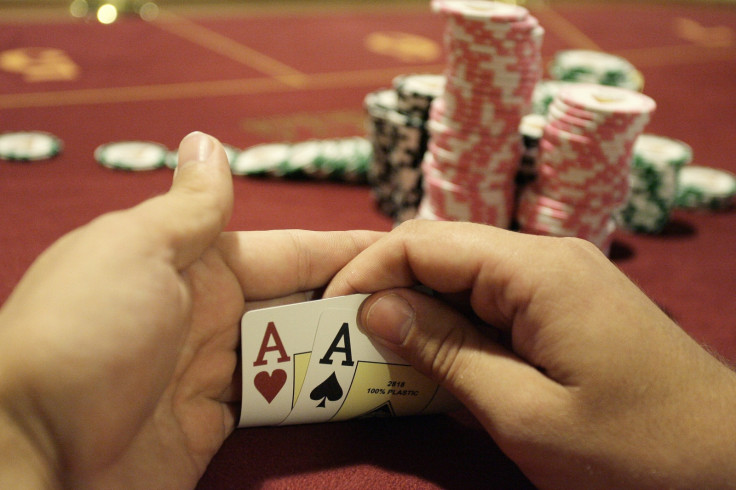Humanity folds: AI just crushed the world's top human poker players in historic victory
In recent years, AI has bested human players in various games including chess, checkers, Scrabble and Go.

AI has bested humanity at yet another game. Libratus, a poker-playing artificial intelligence programme, has definitively crushed four of the world's top players in a tournament lasting 20 days, which came to an end on Monday, 31 January.
Developed at Carnegie Mellon University, the AI programme defeated pro poker players Dong Kim, Jimmy Chou, Daniel McAulay and Jason Les at no-limit heads-up Texas Hold'em at Rivers Casino in Pittsburgh, Pennsylvania, in a landmark AI victory collecting over $1.7m (£1.4m) in chips after the marathon tournament.
In recent years, AI has beaten human players in various other games including chess, checkers, Scrabble, Jeopardy! and, more recently, the ancient East Asian game of Go.
However, poker was seen as a particularly difficult challenge since it relies on "imperfect information" where players don't know what cards their opponents are holding, and intuition and bluffing are key to the game.
"The best AI's ability to do strategic reasoning with imperfect information has now surpassed that of the best humans," Libratus co-creator Tuomas Sandholm, who created the programme with his PhD student Noam Brown, said.
Over the course of the tournament, the human players said they would share strategies every night to find a weakness in the system and secure a victory for humanity against the machine. Libratus, however, grew stronger every day.
"After play ended each day, a meta-algorithm analyzed what holes the pros had identified and exploited in Libratus' strategy," Sandholm said. "It then prioritized the holes and algorithmically patched the top three using the supercomputer each night. This is very different than how learning has been used in the past in poker.
"Typically researchers develop algorithms that try to exploit the opponent's weaknesses. In contrast, here the daily improvement is about algorithmically fixing holes in our own strategy."
The historic victory comes just two years after the researchers' AI programme failed to beat human players in a similar tournament in 2015.
According to CMU, Libratus relied on the raw power of the Pittsburgh Supercomputing Center's Bridges computer, which has a "total speed is 1.35 petaflops, about 7,250 times as fast as a high-end laptop and its memory is 274 Terabytes, about 17,500 as much as you'd get in that laptop."
"The bot gets better and better every day," one of the professional players, Chou, said. "It's like a tougher version of us. The first couple of days, we had high hopes. But every time we find a weakness, it learns from us and the weakness disappears the next day."
The professional players split a $200,000 prize purse based on their individual performances during the event.
"The computer can't win at poker if it can't bluff," Frank Pfenning, head of CMU's computer science department, said. "Developing an AI that can do that successfully is a tremendous step forward scientifically and has numerous applications. Imagine that your smartphone will someday be able to negotiate the best price on a new car for you. That's just the beginning."
© Copyright IBTimes 2024. All rights reserved.





